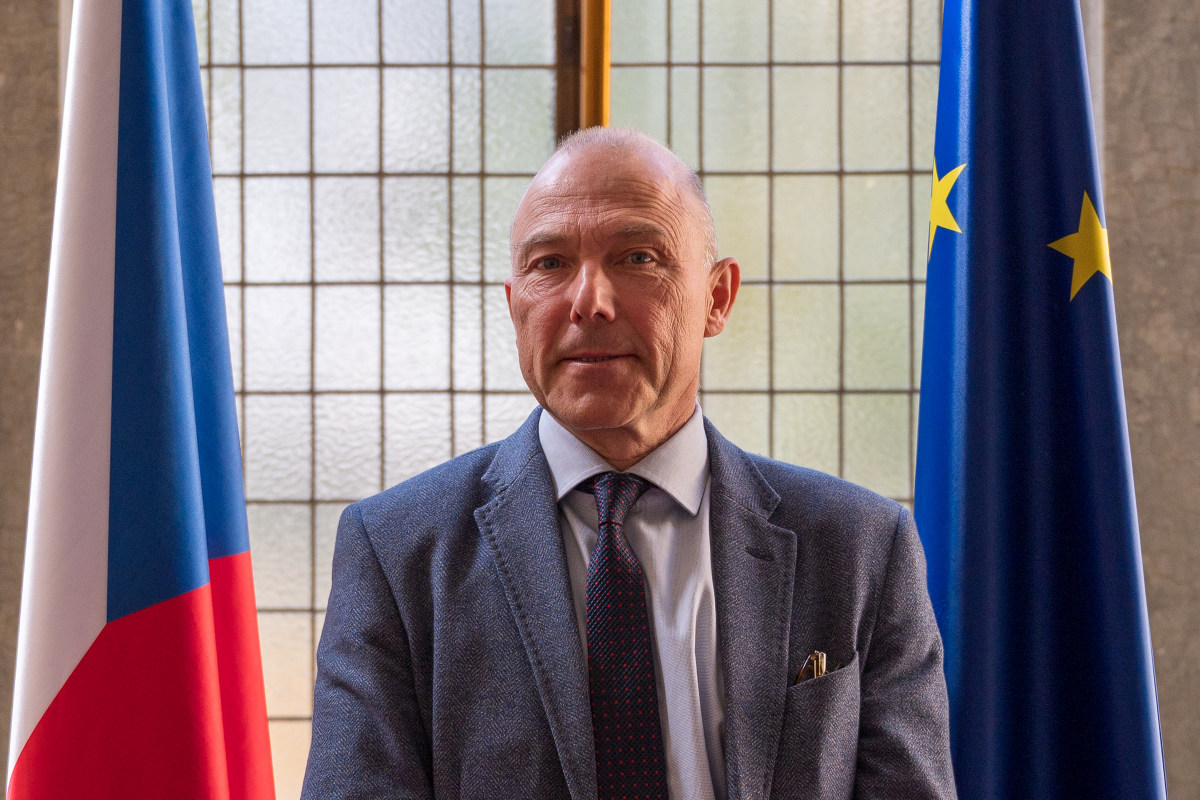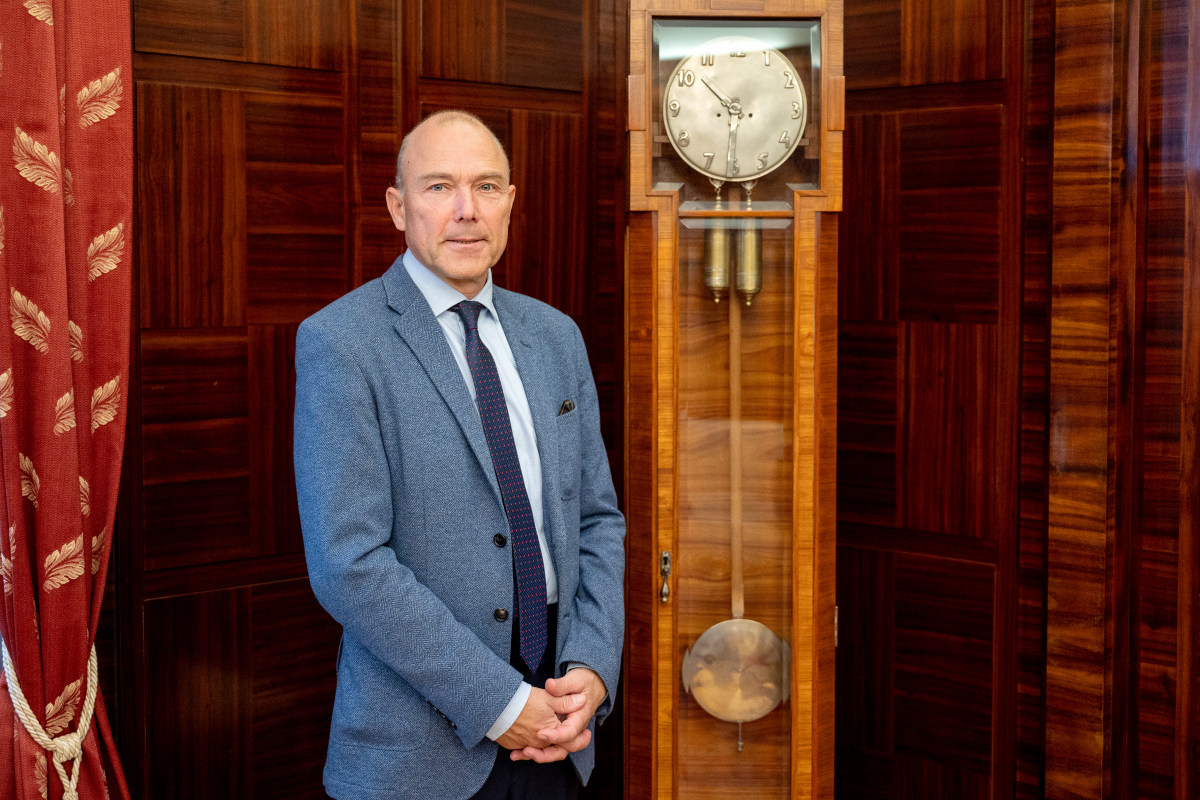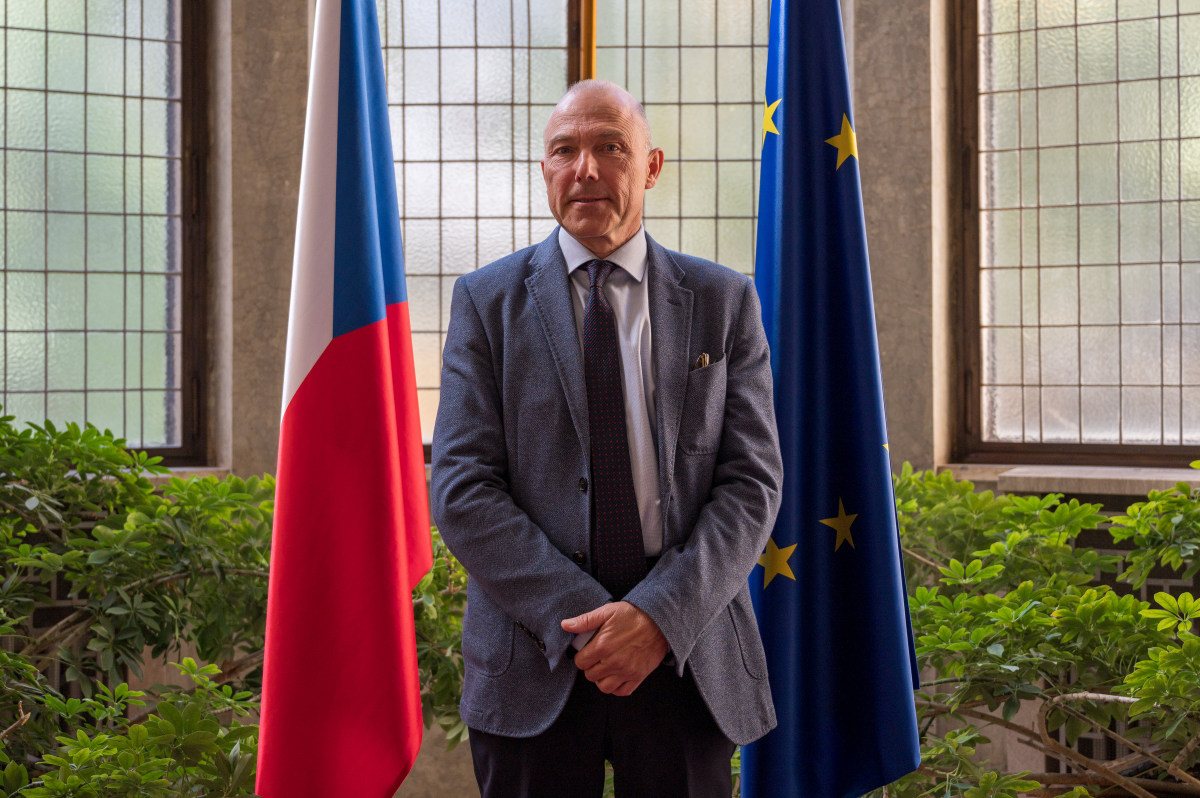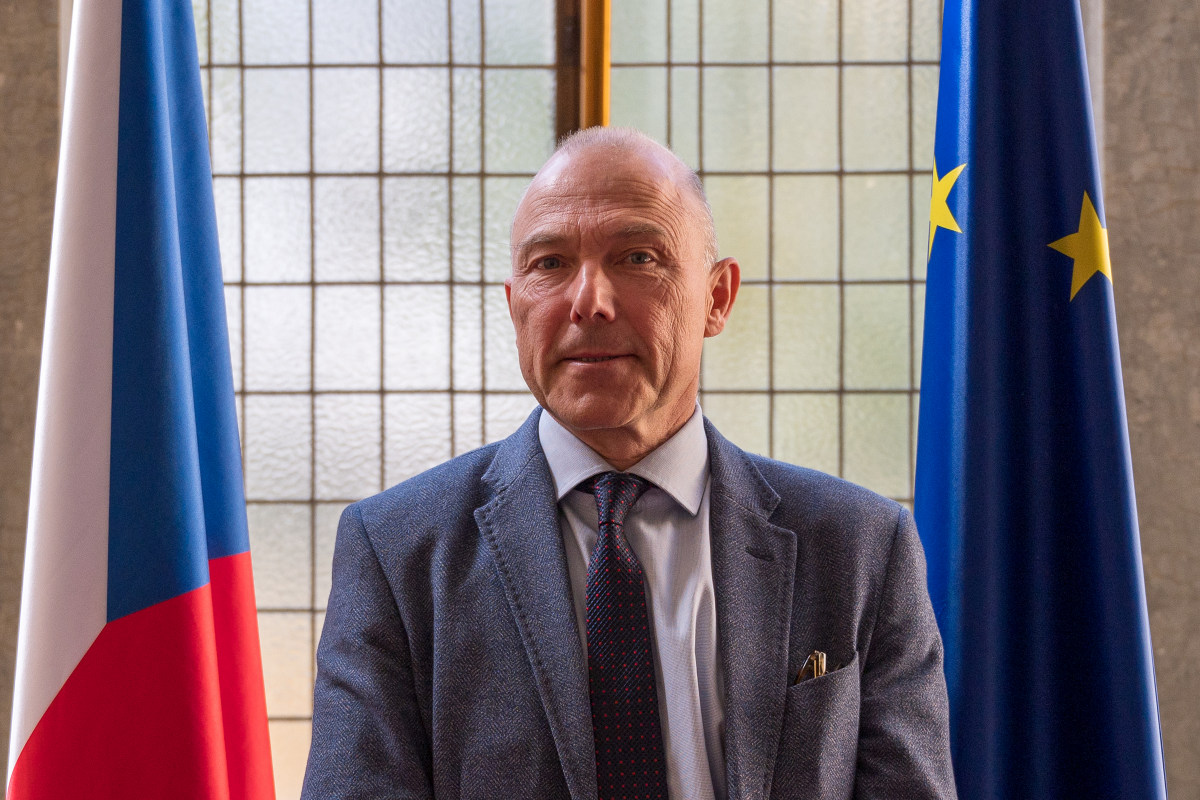Strengthening cultural and economic ties is a top priority for the new Czech Ambassador to Serbia

In his first interview with Serbian media, the newly appointed Czech Ambassador to Serbia, H.E. Mr Jan Bondy, shares his vision for strengthening the long-standing ties between the two countries. Focusing on enhancing cultural exchange and economic collaboration, the Ambassador outlines his priorities and plans to foster mutual understanding and support as both nations navigate a dynamic regional landscape.
What are your main priorities as the new Czech Ambassador to Serbia, and how do you plan to strengthen the relationship between the two countries?
I am very happy to be in this friendly country. First of all, I must highlight the long-standing tradition of ties between Czechs and Serbs. I am fascinated by how much knowledge ordinary people here have about Czechia, and I hope to foster a similar awareness of Serbia in Czechia, promoting Serbian culture and people as much as possible.
Naturally, my main task here is to work on supporting Czech investments and cultural relations, and I’m excited about it. I’ve already started by visiting Bela Crkva and meeting people of Czech origin there. I also visited Novi Sad to see an exhibition featuring Alphonse Mucha and Czech/Serbian artists, which was very interesting.
Since my predecessor was very active in the economic field, I aim to continue that work while also incorporating more cultural initiatives, given my own background in culture. Culture has historically connected us, and I look forward to building on that connection. We will soon be opening the Český dum, Češki dom (Czech Centre), which is already operational.
This small organisation, subsidised by the Ministry of Foreign Affairs, now has a new director and new management. They will focus on offering Czech language courses and promoting Czech culture in Serbia. This will be one of my main responsibilities to introduce our Czech presence here in Serbia in an modern and attractive form.
Serbia and Czechia have a long history of cooperation, particularly in economic and cultural sectors. In what areas do you see the greatest potential for further collaboration?
As I mentioned earlier, there is a considerable amount of knowledge about Czechia here, but it is equally important for Czechia to strengthen its connection with Serbia, helping people understand the situation in Serbia better. This is also one of the key items on my agenda — to encourage more visitors to Czechia, promote new cultural trends, and create more opportunities, especially for young students, by fostering student exchange programmes.
The Czechia views Serbia as a dominant force in the region, recognising its potential and aiming to support its EU integration process
We offer scholarships to Serbian students, and we also have new initiatives, particularly in areas of interest to young people, such as the IT sector, business incubators, and start-ups. These initiatives connect young people from different parts of the world, and I would be happy to see more Serbs integrated into these international projects, as this represents our future and will strengthen our bond even further.
Now I have one question beyond this agenda, and it just popped up to me. This is only my personal opinion, but I am very confident that Serbian people consider Czech people as great friends throughout history. And here in Serbia, we think that no one in Europe and no one from the other Slavic nations can understand Serbian history better than Czech people. Is it true, and do you think the same, or can you comment on our historical connections and understanding through history, not only Serbian history but also Czech history from the Serbian side?
As you can see, even the history of our embassy buildings reflects the strong ties between our countries. We have a wonderful location here in Belgrade, and the Serbs have a fantastic location in Prague, right next to Charles Bridge. This alone shows how deep our historical and diplomatical connections have been.
We are especially grateful to Serbia and the former Yugoslavia for supporting us in 1968 after the Soviet army invaded Czechoslovakia. It was an incredibly difficult time, and you were the only one who truly understood what we were going through. We will never forget that, as it was a significant moment in our lives.

On the other hand, we also understood the challenges Yugoslavia faced after the political changes. At that time, we viewed Yugoslavia as a model that could show us the way forward, demonstrating how a country could develop within a socialist system. Of course, we didn’t fully grasp the complexities of the risks within the diverse societies in Yugoslavia, but we watched closely and offered our support. After the Velvet Revolution in our country — a peaceful transition from the old system to a new one — and the split of Czechoslovakia into two countries, Czechia and Slovakia, we hoped that Yugoslavia would follow a similar path. Unfortunately, it didn’t happen, but we fully understood the situation.
You may recall that we supported your country during that difficult time. There was significant immigration, and I believe the Czech people were among the first to both understand and offer help.
Since then, much has changed. Now, as members of the international community for over 35 years, we are committed to supporting Serbia on its path to joining the European Union. We believe this is the best way to ensure a prosperous and secure future, especially in light of the current global situation. This, in my view, is a great example of cooperation and partnership.
The Western Balkans is a region undergoing many political and economic changes. How do you view Serbia’s role in the region, and what can Czechia offer to support Serbia’s EU integration process?
It’s the perfect time to continue moving forward with this. We have always viewed Serbia and Belgrade as dominant force in the region, recognising the enormous potential here. The way Serbia manages its minorities in the north, south, east, and west was a case study for us at that time, and now we aim to be a partner that helps guide you smoothly on the path towards becoming a member of the European Union.
Our countries share a profound historical understanding, as demonstrated by our support for Serbia during challenging times, which deepens our commitment to partnership and cooperation today
Given our own experience over recent years in navigating the economic and political aspects of EU integration, we are doing our best to support Serbia’s adaptation to EU standards. This includes offering technical and financial assistance, which we hope will be beneficial. We are bringing in experts, providing financial resources, and sharing our expertise to help Serbia achieve this goal as safely and efficiently as possible. In our view, there is no alternative.
Czech investments in Serbia have increased over the years. How do you plan to encourage more Czech companies to invest in Serbia, and what challenges do you anticipate? For example, Škoda was the most selling car in Serbia, and I think maybe it’s still the most selling.
Czech investments in Serbia have grown significantly over the years. In recent years, trade between our two countries has increased several times, and I believe we are now among the 10th largest investors in Serbia.
Aside from Škoda, which still holds over 20% of the market—a remarkable achievement—we also have substantial investments in real estate. There are plans to contribute to the development of the Belgrade Waterfront and Dorćol Marina, with billions of euros being invested in the construction industry.
As I mentioned earlier, we are also working to attract new investments. Karlovy Vary Mineral Water has invested in the Knjaz Miloš company, and there are numerous other investments in technology. We have a very successful partnership in the railway sector, particularly in the northern region connecting Budapest and Belgrade. Going forward, I plan to focus on strengthening cooperation between universities, especially technical universities, to facilitate student exchanges and also support various food industry companies.
With global challenges such as climate change, migration, and regional security, how do you see Serbia and Czechia working together to address these issues on a bilateral and multilateral level?
I read somewhere that two small countries can never achieve the same as large ones, but that’s not true. There is an alliance of smaller, like-minded countries that can accomplish a great deal. It’s not just about the big players—it’s also about us and how well we can communicate together, share our values, and support each other.
This is clearly demonstrated within the European Union, where each member state, no matter its size, has an equal voice, which is incredibly important. It’s crucial for our future because, as you mentioned, climate change affects all of us. Just a few days ago, there were massive floods in our region, in Czechia, Poland, Hungary and Austria—and we are very thankful for your offer of support.
This is exactly why mutual assistance, understanding, and cooperation are so vital. A few years ago, many things seemed to be in a “normal” state, but today, with climate change and global shifts, our cooperation is more necessary than ever.
We helped Serbia during the migration crisis in 2015, and within a few weeks, we were able to provide significant assistance. We sent police officers to Serbia to help with border procedures, and our cooperation continues to this day. There is ongoing collaboration between Serbian and Czech police forces on international crime and migration issues, and we greatly value this exchange between our police and military structures.
This is essential for ensuring a safe future for both of our countries. As for climate change, we don’t know what the future holds, but we must be prepared and train together to tackle the problem and work to reduce the activities contributing to it. Time will tell if we succeed.

This interview was originally published in the October edition of Diplomacy&Commerce magazine, issue #99.
Interview conducted by: Dragan Nikolić
Photos by: Tadija Zlatković for D&C magazine








